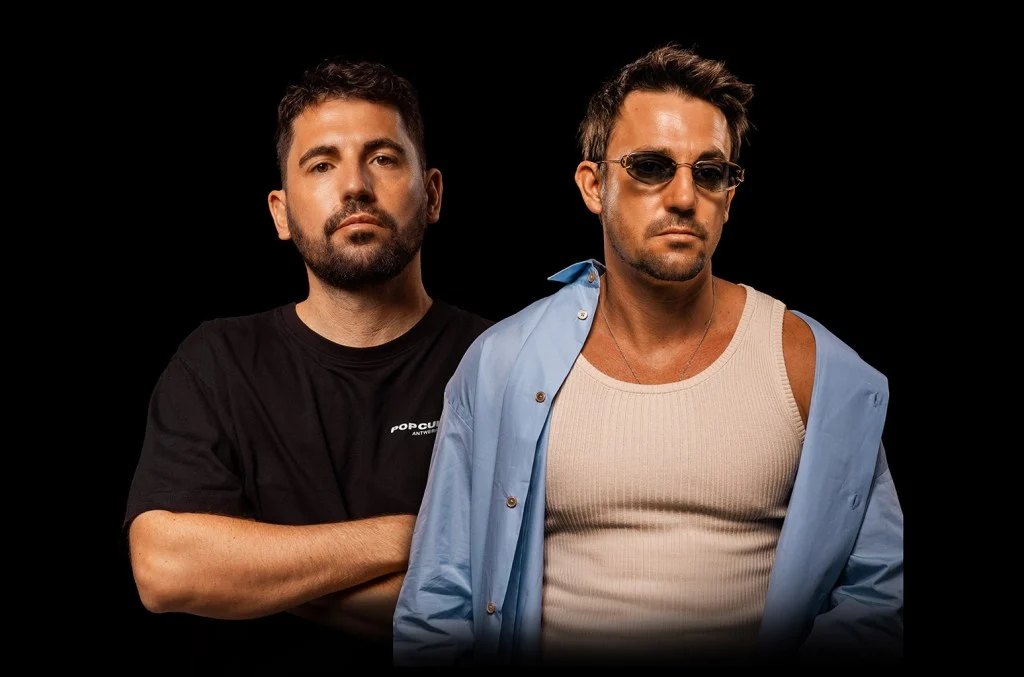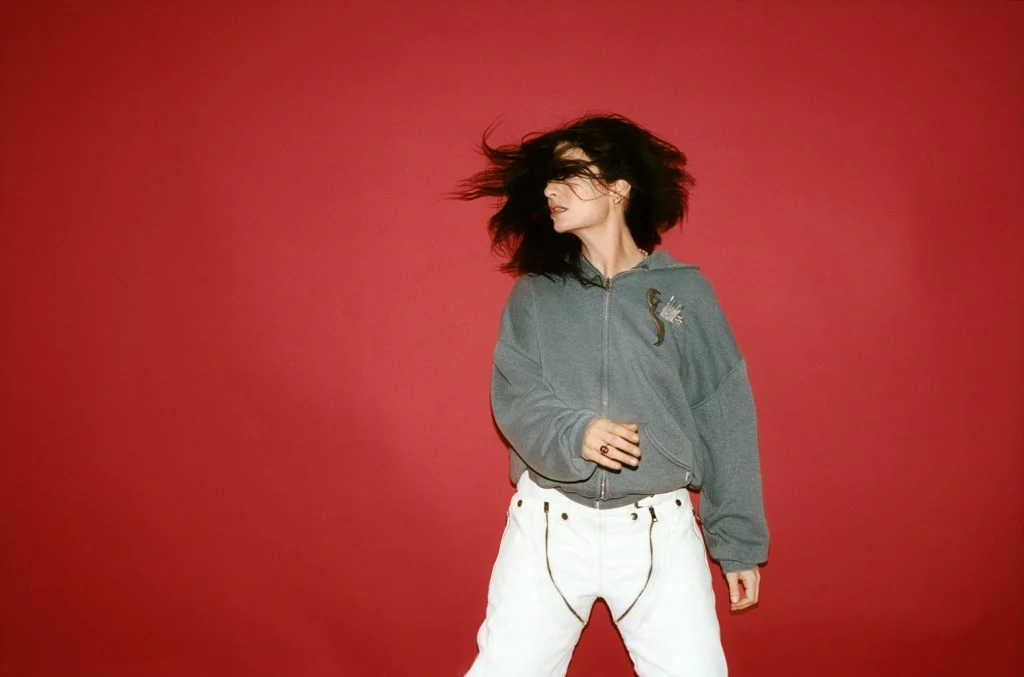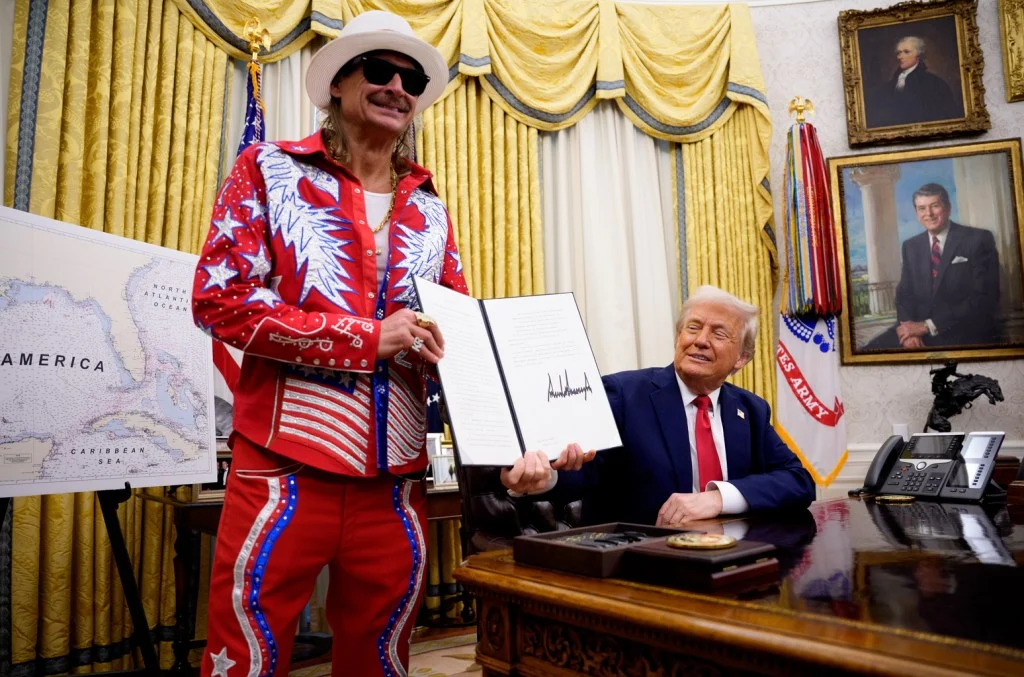Touring
Page: 18
After a 28-city international leg that included London’s O2 and Dublin’s 3Arena, stand-up comedian, actor and writer Shane Gillis announced the extension of his Shane Gillis Live tour to 10 additional U.S. cities on Tuesday (May 13).
The new dates — which have been scheduled in July, August and September — will take Gillis to arenas in Tulsa and Oklahoma City, Okla.; Kansas City, Mo.; Louisville, Ky.; St. Louis, Mo.; Detroit; Grand Rapids, Mich.; Milwaukee; Houston; Hollywood, Fla.; and Orlando, Fla.
Representatives for Gillis said in an announcement that the added performances, which will be promoted by Outback Presents, come in response to “a staggering demand for tickets across the U.S., Canada and European dates,” adding that Gillis has “set the all-time ticket sales record at six arenas,” including Toronto’s Scotiabank Arena and achieved historic sellouts at 11 more, including Philadelphia’s Wells Fargo Center and Lenovo Center in Raleigh, N.C., marking each of the venue’s largest comedy shows ever.
Trending on Billboard
Gillis, who hails from Mechanicsburg, Pa., and is lifelong avid Notre Dame University football fan — his grandfather and cousin played for the team, and he appeared in an Under Armour commercial for the blue and gold — is slated to co-headline the stadium there with Zach Bryan and Dermot Kennedy on Sept. 6. If that show sells out, it will surpass the world record for the largest single-show attendance for a comedian in history. (Gillis does not report box-office results to Billboard Boxscore.1
Gillis has emerged as a comedy phenomenon over the last five years, despite being hired as a Saturday Night Live cast member in 2019 and then dismissed before the season began after examples of him using racist language on podcasts. He has since become a touring behemoth, the Matt and Shane’s Secret Podcast he hosts with comedian Matt McCusker consistently ranks in the top 15 of Spotify’s U.S. Comedy charts, and on June 5, the second season of his series, Tires, will debut on Netflix. He has also hosted SNL twice — in 2024 and 2025.
Artist presale sign-up and tickets are available on Shane Gillis’ website.
Patreon presale will begin Tuesday, May 13, at 10:30 a.m. CT
Artist presale will begin Wednesday, May 14, at 10 a.m. local
General on sale begins Friday, May 16, at 10 a.m. local
Shane Gillis
Courtesy Photo
DJ duo Dimitri Vegas & Like Mike have signed with Independent Artist Group in all areas, including film and television for Dimitri Vegas Thivaios’ burgeoning acting career. The pair had previously been represented by CAA. Belgian-born brothers of Greek heritage, Dimitri Vegas & Like Mike made history as the first duo to be named the […]
On May 9, Beyoncé wrapped a historic run of five shows at SoFi Stadium in Inglewood, California, 10 miles from downtown Los Angeles. According to figures reported to Billboard Boxscore, the Cowboy Carter Tour kick-off grossed $55.7 million and sold 217,000 tickets.
Beyoncé’s $50 million-plus run in Los Angeles is the biggest reported single-venue engagement of 2025 so far, eclipsing multiple stops on Coldplay’s tour through Asia and Shakira’s seven-night stay in Mexico City. Further, it’s the fifth-highest grossing tour stop in Boxscore history, only behind two legs of U2’s Sphere residency in Las Vegas (2023-24), Harry Styles’ 15 shows at Madison Square Garden in New York (2022), and eight nights of Take That at Wembley Stadium in London (2011). Notably, it’s the highest-grossing reported single-venue engagement ever by a woman.
Cowboy Carter Tour launched on Monday, April 28, with successive performances on May 1, 4, 7, and 9. On average, Beyoncé grossed $11.1 million per night, playing to more than 43,000 fans at each show. In completing this week-long run, she has now played more shows at SoFi Stadium than any other artist in the venue’s history – eight, including three in 2023 – since its opening at the beginning of the decade.
The L.A.-area shows may not even remain the tour’s peak, as an upcoming five-night stay at MetLife Stadium in East Rutherford, N.J. (13 miles from New York) could challenge that $55 million take. Beyoncé will have her longest run at one venue in London with six nights at Tottenham Hotspur Stadium, though ticket prices overseas often fall below the surging rates in the United States.
Using Cowboy Carter Tour figures in the Los Angeles area as a guide, with city-by-city comparisons to previous tours, it appears that Beyoncé’s 2025 run is barreling toward Billboard’s initial projections of $300 million. It will out-gross all of her previous tours with the lone exception of 2023’s Renaissance World Tour, which ran for 56 shows compared to Cowboy Carter Tour’s current routing of 32. According to Live Nation, total ticket sales will eclipse one million.
The initial reports for Cowboy Carter Tour push Beyoncé’s reported career Boxscore earnings past $1.4 billion, with 11.9 million tickets sold. Those totals will continue to rise until the trek closes on July 26 at Las Vegas’ Allegiant Stadium.
A dump truck slammed into the iconic Whisky a Go Go music venue in West Hollywood, Calif., on Friday afternoon (May 9).
Los Angeles County fire officials said the crash occurred around 1:40 p.m. and involved five vehicles, according to ABC 7. The truck also struck a power pole, cutting electricity to a block surrounding the famed Sunset Strip landmark. No serious injuries were reported.
“Due to the traffic collision, some power has been affected and power is out to some parts of the area,” the Los Angeles County’s Sheriff Department stated in a Friday alert. “Crews are currently on scene and working to restore power.”
Explore
Explore
See latest videos, charts and news
See latest videos, charts and news
The incident forced the cancellation of Friday night’s scheduled show, which was to feature bands including Boy Hits Car, Barefoot in the Bathroom, and Gearheart. The famed hoped it could reopen by Saturday.
Trending on Billboard
“Well… that was wild,” Boy Hits Car wrote on Instagram. “Yesterday, just hours before we were set to headline at the legendary Whisky A Go Go, a dump truck crashed into the venue. Our show was unfortunately canceled as a result, but the scene quickly turned surreal. ABC7 News and KCAL were there on the spot, and next thing you know, we’re doing interviews for TV instead of soundcheck.”
The band continued, “We’re grateful no one was hurt and we appreciate everyone who reached out in concern. It wasn’t the night we planned, but it sure was memorable.”
The Whisky a Go Go, which opened in 1964, helped foster Los Angeles’ burgeoning rock scene. The venue has hosted generations of legendary acts — from The Doors, the Byrds and Janis Joplin to Led Zeppelin, Metallica, Guns N’ Roses and Mötley Crüe.
The festival business has struggled to find its footing this summer, but one production company is finding success in the festival space with a new strategy: smaller, lighter footprint events.
Tomorrow, Activated Events will open its sixth Boots in the Park festival for 2025 in Santa Clarita, Calif., with Old Dominion headlining and support from Nate Smith, Josh Ross, Mackenzie Porter, Noah Rinker and more. The one-day festival combines food, beverage and live music, with a price tag of $59 for general admission (GA) when tickets first go on sale in January, with the price steadily climbing as the event gets closer (GA tickets are currently priced at $119, with VIP tickets going for $255.)
The Boots in the Park brand is the culmination of Activated Events president Steve Thacher‘s decade-plus in the music business, first with the launch of Wet Electric in 2010 — a Las Vegas-style dance and electronic show held at waterslide parks in the southwest. That evolved into the launch of Coastal Country Jam in Huntington Beach, Calif., and then Boots in the Park starting in 2017.
“Our festivals are more boutique than some of the other major country and mainstream festivals,” Thacher tells Billboard. Indeed, Boots in the Park events range in size from 10,000 to 20,000 and don’t include camping or overnight visitors.
In 2025, Activated will host Boots in the Park festivals in Bakersfield, Calif.; San Diego; Las Vegas; Fresno, Calif.; Albuquerque, N.M.; and Tucson, Ariz. Thacher notes that Activated works closely with city leaders to create “a more intimate and personalized experience than some of the larger festivals.”
“Our fans love that they can enjoy 10 hours of some of the best country music and still sleep in their own beds at the end of the evening,” Thacher tells Billboard, noting that Boots in the Park’s California festivals all take place one to two months after the massive Stagecoach country music festival in Indio, Calif., that’s regularly attended by more than 80,000 fans.
“We think there is a place for both boutique festivals as well as large festivals to exist in the same market,” Thacher says. “The benefits of being an independent festival producer has allowed my team and I to really know our events, brands, and customers extremely well. It also allows our creative side to come out. When we come up with a fun idea, whether it be a new art installation, a fun festival activity, discover a new venue or curating amazing lineups, we get to have fun letting our creativity run wild.”
Being independent, however, does come with its challenges, especially when it comes to booking talent and competing against the big corporate promoters with much larger budgets.
“Fortunately, all of the artists that have played our festivals appreciate the level of production, hospitality and full houses of fans,” says Thacher. “This has made the country artists want to come back and continually play Boots In The Park, Coastal Country Jam and The Smoke Show. “We have developed the trust and respect of the artists, management and agents in Nashville and they feel confident that the artist will be well looked after when they play our events.”
One of the keys to their festivals’ success, Thacher explains, is making sure fans feel like they’re getting a good value for the money they spend on tickets.
“Boots In The Park is more than just a music festival, it’s a full day of immersive experiences. Beyond the incredible live performances, fans can jump into line dancing lessons, sample a variety of 101 unique whiskeys at our curated tastings, and compete in cornhole tournaments for a chance to win exclusive meet-and-greet opportunities with the artists,” he says. “The event also features interactive art installations that add a creative and memorable touch, making it a well-rounded celebration of music, culture and community.”
Boots in the Park takes place this Saturday in Santa Clarita. For more, visit bootsinthepark.com.
John Summit will play his biggest solo headlining set to date this fall in Boulder, Colo. The show will happen on October 18 and the city’s 50,000-capacity Folsom Field, the football stadium located on the University of Colorado Boulder campus. The show is being presented by AEG Presents Rocky Mountains in partnership with CU Boulder, with general tickets […]
With tourism to the U.S. on shaky ground and consumer sentiment waning, Sphere Entertainment Co. CEO James Dolan says the Sphere venue in Las Vegas is on sound footing.
“There’s a little bit of Chicken Little going on in our economy,” Dolan said during the earnings call on Thursday (May 8), referring to the children’s fable about unfounded warnings that the sky is falling. “Maybe later we’ll see a more substantive reaction from the marketplace, but right now we’re not really seeing it.”
International guests account for 10% of guests to Sphere’s concerts and “a little over” 20% of visitors to Sphere Experience, the viewings of Sphere’s original content, according to Dolan. Even if Las Vegas experiences a decline in tourism, Dolan believes Sphere will be insulated by strong demand for its state-of-the-art performances. “When it comes to concerts,” he said, “demand exceeds capacity, so we have room to absorb any issues.”
Trending on Billboard
International relations and tariff concerns couldn’t be blamed for the decline in Sphere revenue in the company’s fiscal quarter ended March 31. Instead, it was an issue of fewer events that caused a 12.8% decline in revenue, to $157.5 million, the company’s parent, Sphere Entertainment Co., announced Thursday.
Sphere did show greater operational efficiency in the quarter. Selling, general and administrative expenses fell 12%, and adjusted operating income (AOI) was flat at $13.1 million despite the decline in revenue.
Investors reacted positively, sending shares of Sphere Entertainment Co. as high as $31.43, up 5.5%, on Thursday morning. The share price was up 5.2% to $31.33 in early afternoon trading.
With residencies by The Eagles, Dead & Company and Anyma, Sphere hosted 10 more concerts than the year-ago period. But the Sphere Experience had fewer showings of original content — Postcard From Earth and V-U2 An Immersive Concert Film — compared to the prior-year period. The quarter also had a difficult comparable because Las Vegas hosted the 2024 Super Bowl, which resulted in a record-setting week for Sphere’s advertising, CFO Robert Longer said. Those decreases were partially offset by increases in event-related revenues and the impact of Delta Air Lines’ corporate takeover of Sphere during CES in January.
Total Sphere Entertainment Co. revenue, which includes MSG Networks, fell 13% to $280.6 million. Consolidated AOI fell 25.6% to $36 million. MSG Networks revenue was $123.0 million, down 19% from the prior-year period, which reflects a nearly two-month absence of programming from Altice while the two parties renegotiated a multi-year renewal.
Dolan said he’s confident the company can drive growth this calendar year through “an array of concerts and third-party events,” sponsorships, and driving operational and cost efficiency. While he didn’t provide details on unannounced future residencies, Dolan said Sphere is having discussions with “multiple artists” and has more demand than availability of shows. “The pipeline is very full,” he assured.
Lorde is gearing up to do a scan of arenas across North America and Europe this fall, with the pop star announcing her Ultrasound Tour in support of upcoming album Virgin Thursday (May 8).
Breaking the news on Instagram, Lorde shared a tour poster featuring a blue X-ray photo — similar to her June-slated fourth album’s cover art — and wrote, “I am going on tour in support of my new album, Virgin.”
“Very proud and excited to be bringing my most talented friends in support,” she added. “Come see what’s under the skin.”
Trending on Billboard
Per the tour poster, Virgin co-producers Jim-E Stack and Dev Hynes of Blood Orange will be joining the “Royals” singer on the road for select dates, as will The Japanese House, Nilüfer Yanya, Chanel Beads, Empress Of and Oklou. The trek will kick off Sept. 17 in Austin, Texas, followed by U.S. and Canada shows in Chicago, Nashville, Toronto, Boston, New York City, Las Vegas, Seattle and more cities through late October.
In November, Lorde will head overseas for the European leg, starting in Luxembourg and followed by Paris, London, Dublin, Amsterdam, Berlin and more before wrapping Dec. 9 in Stockholm.
The Ultrasound Tour will mark Lorde’s first trek since 2021’s Solar Power Tour, which supported the Grammy winner’s album of the same name. It’s also her first arena tour since the 2017-2018 Melodrama World Tour, with Lorde favoring more intimate, theater-sized venues for the Solar Power run.
Fans can buy tickets as soon as May 14, with a pre-sale going live at 10 a.m. local time. Registration is already open on Lorde’s website.
After that, more tickets will become available in a general on sale on May 16.
The announcement comes shortly after Lorde dropped her comeback single, “What Was That,” in April, shortly before revealing that Virgin would be arriving June 27.
See Lorde’s Ultrasound World Tour announcement below.
AEG Presents announced today that Andrew Spencer has been named chief operating officer of AEG Presents Europe. In his new job, Spencer will oversee the concert promotions company’s network of promoters, venues and festivals and focus on realigning the company’s strategy and growth initiatives in the region. Spencer will be headquartered in London, where he […]
The Department of Justice (DOJ) and the Federal Trade Commission (FTC) have launched an official inquiry into the event ticketing business at the urging of President Donald Trump, the agencies announced Wednesday (May 7).
As part of the inquiry, “the agencies invite members of the public to submit comments and information on harmful practices and on potential regulation or legislation to protect consumers in the industry,” according to a press release. Anyone “impacted by anticompetitive practices in the live concert and entertainment industry” will have 60 days to submit comments to Regulations.gov, with the comment period concluding on July 7.
After the comment period closes, the agencies state they will “use the information in their preparation of the report and recommendations directed by President Trump” in his Executive Order 14254, also known as Combating Unfair Practices in the Live Entertainment Market. Signed by the president during a March 31 meeting in the Oval Office with musician Kid Rock in attendance, the order directed the Attorney General, along with the Secretary of the Treasury and the chairman of the FTC, to submit a report identifying “recommendations for regulations or legislation necessary to protect consumers” in the industry, including by enforcing the Better Online Tickets Sales (BOTS) Act.
Trending on Billboard
Passed in 2016, the BOTS Act gives both the DOJ and the FTC broad power to crack down on scalpers who illegally use automated technology to skirt the restrictions placed on high-demand ticket sales and prevents scalpers from buying up the best seats to flip for profit. Yet since its passage in 2016, the BOTS Act has only been used once to prosecute scalpers who knowingly break the rules put in place to make ticket buying fairer and more equitable.
“Competitive live entertainment markets should deliver value to artists and fans alike,” said Assistant Attorney General Abigail Slater of the DOJ’s Antitrust Division in a statement. “We will continue to closely examine this market and look for opportunities where vigorous enforcement of the antitrust laws can lead to increased competition that makes tickets more affordable for fans while offering fairer compensation for artists.”
Added FTC Chairman Andrew N. Ferguson, “Many Americans feel like they are being priced out of live entertainment by scalpers, bots, and other unfair and deceptive practices. Now their voices are being heard. President Trump has sent a clear message that bad actors who exploit fans and distort the marketplace will not be tolerated. The FTC is proud to help deliver on that promise and restore fair and competitive markets that benefit ordinary Americans.”
The inquiry comes as several ticketing bills work their way through Congress, most notably the TICKET ACT, which passed the House of Representatives on April 29 and also includes language calling for the enforcement of BOTS Act.
“Illegal bot use runs rampant in the ticketing industry because the FTC has only brought one enforcement action since the use of bots was banned in 2016,” read a statement from Stephen Parker, executive director of National Independent Venue Association (NIVA), shortly after the April 29 passage of the TICKET ACT in the House. He added, “We hope Congress does not miss the opportunity to ensure these laws are actually enforced in the future.”

 State Champ Radio
State Champ Radio 









